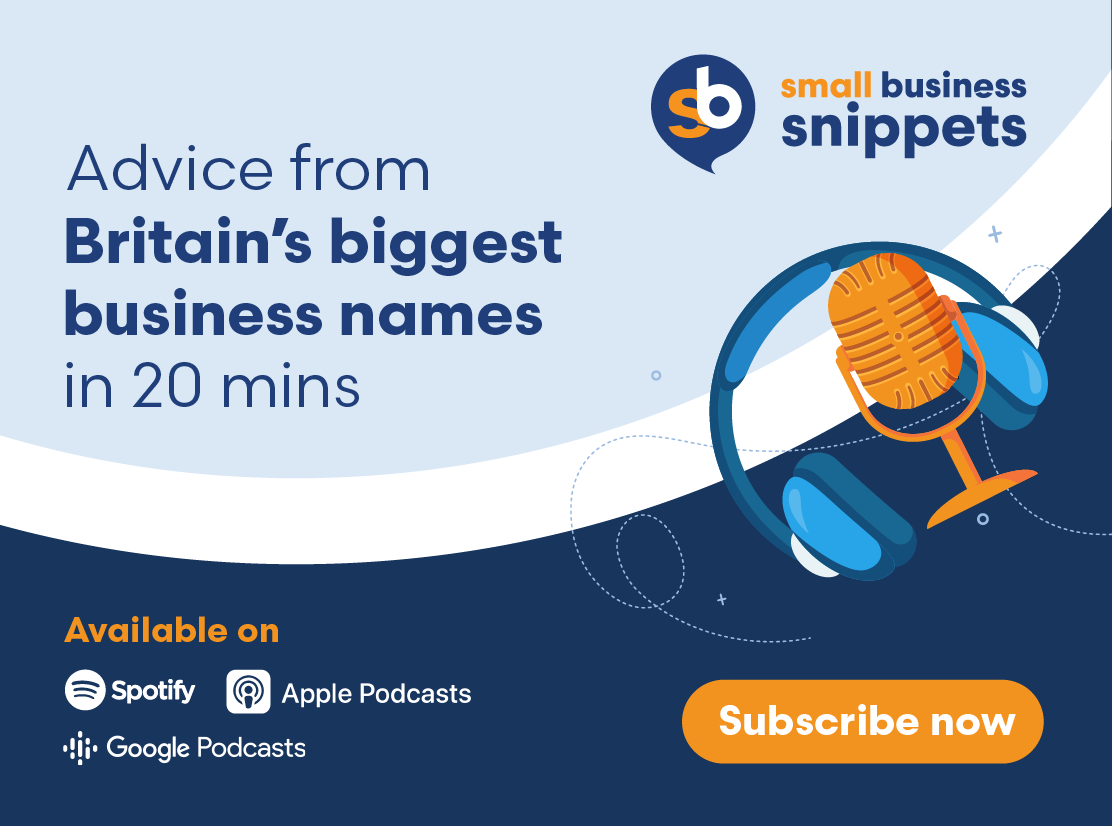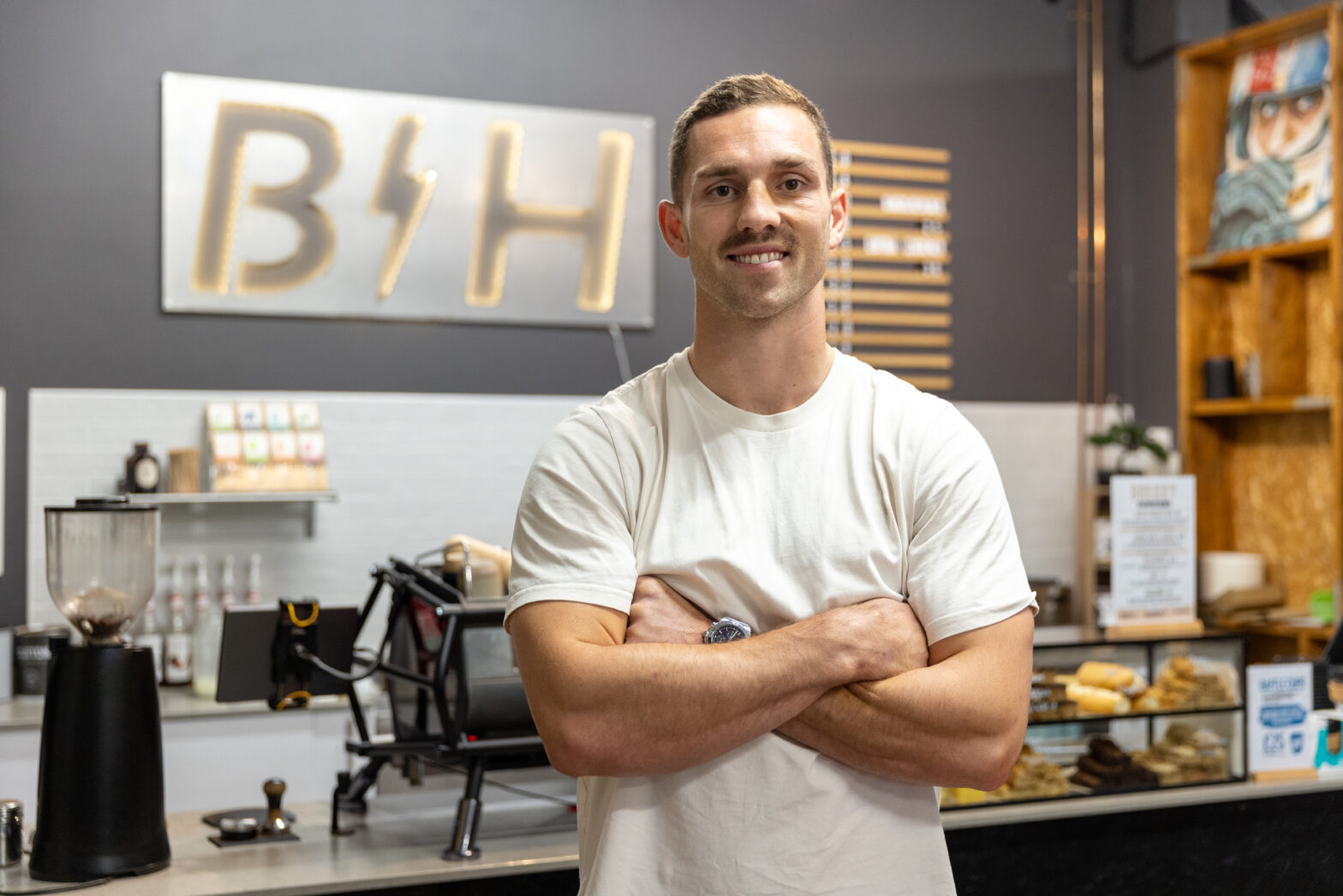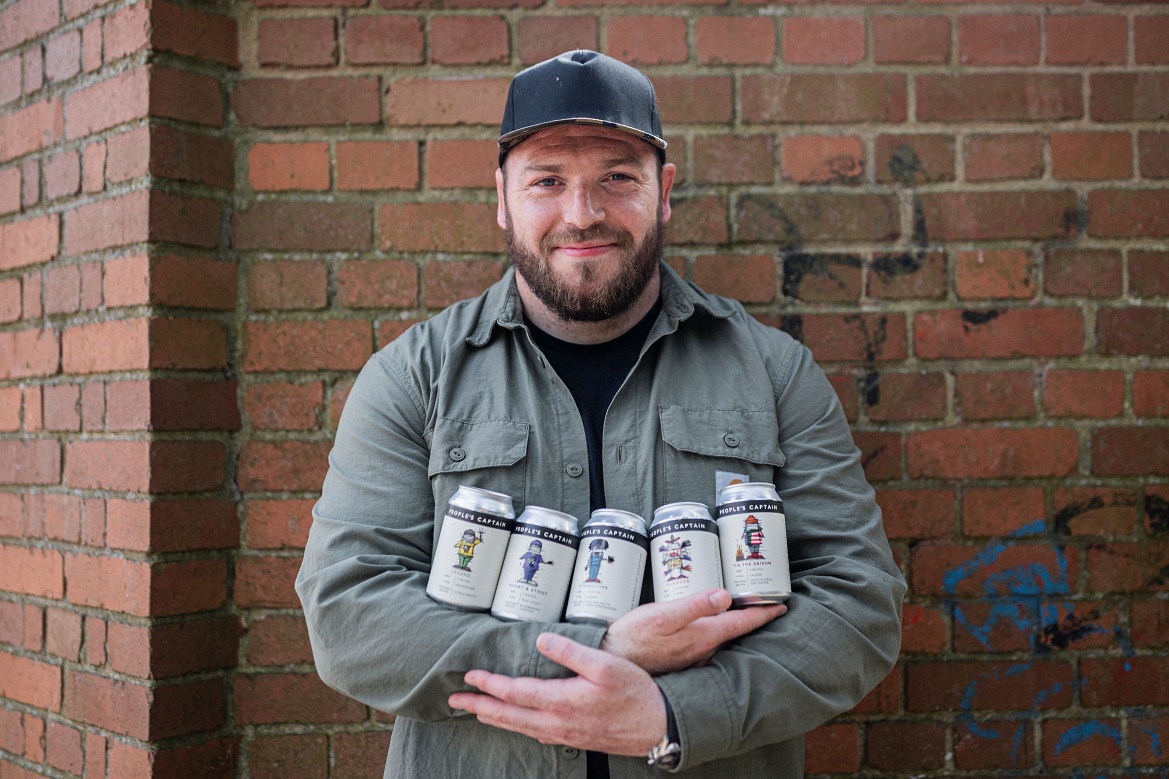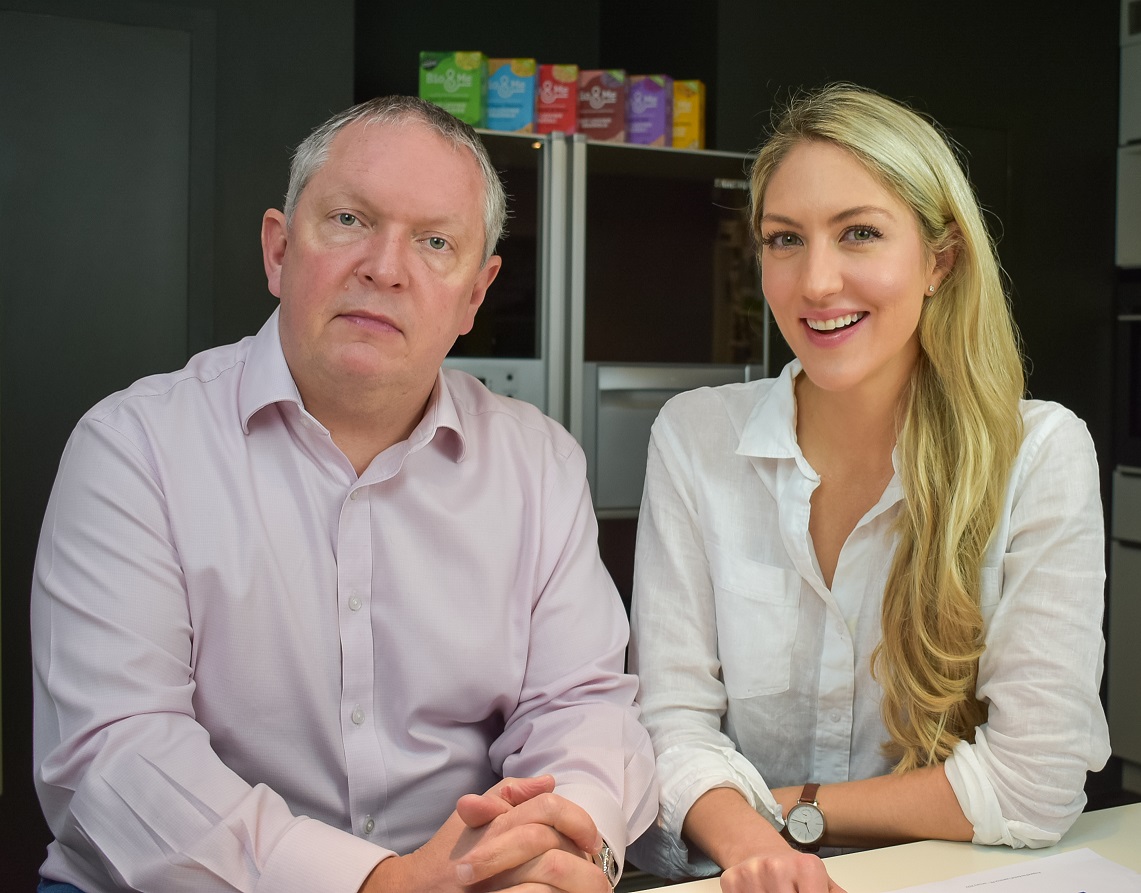Welcome to Small Business Snippets, the podcast from SmallBusiness.co.uk. Today’s guest is Spencer Matthews – entrepreneur, TV personality and angel investor.
We discuss how his experiences with alcohol encouraged him to launch his low and no alcohol drinks business, CleanCo.
Listen to it in the media player below.
Alternatively, you can watch the video here:
You can also catch our episodes with:
- Entrepreneur and former Dragon on Dragon’s Den Ireland, Lady Chanelle McCoy
- Businessman and The Apprentice winner, Mark Wright
- Entrepreneur and campaigner, Paul Lindley
- Managing director of Brompton Bikes, Will Butler-Adams
- Businessman and author, Gerald Ratner
- Entrepreneur and TV presenter, Trinny Woodall
- Pub owner and bartender on Channel 4’s First Dates, Merlin Griffiths
- Founder and chairman of Pimlico (formerly Pimlico Plumbers), Charlie Mullins
- Retail expert and former Dragon, Theo Paphitis
- Author and boardroom expert, John Tusa
- Digital guru and investor, Sherry Coutu
- Entrepreneur and former Dragon, Rachel Elnaugh
- Businesswoman and Dragon, Deborah Meaden
- Entrepreneur and The Apprentice 2005 candidate, Tim Campbell
- Gousto CEO, Timo Boldt
- Entrepreneur and The Apprentice 2018 candidate, Jackie Fast
- Investor and former Dragon, Piers Linney
- Investment fund manager, Nicola Horlick
- Supermodel turned entrepreneur, Caprice
We’ve got podcast episodes from the first series looking at:
- How one business owner’s mental breakdown caused her to see trolls from her past
- How one entrepreneur hired a videographer to track their every move and build their business brand
- How funding a business led one entrepreneur to stress-related alopecia
- One entrepreneur’s first professional public speaking engagement
- Adapting to UK life and learning English before starting a business
- Securing seed funding
- Finding the perfect head of customer care
- Reaching a £1 million annual rate of return
- Boosting client numbers from 30 to 850
- Starting a brand new business from scratch
To find out more about Small Business Snippets, you can download the trailer.
If you want to listen to the podcast elsewhere, it’s available on Apple Podcasts, Google Podcasts and Spotify. Watch the new video versions and subscribe over at our YouTube channel. It’d also be great if you could leave us a review.
Remember to like us on Facebook @SmallBusinessExperts and follow us on Twitter @smallbusinessuk, all lower case.
Prefer to read Spencer Matthews’ podcast interview instead?
Hello and welcome to Small Business Snippets, the podcast from SmallBusiness.co.uk. I’m your host, Anna Jordan.
Today we have Spencer Matthews – entrepreneur, TV personality and angel investor.
Spencer rose to fame on TV’s Made in Chelsea and has since appeared in other shows including Celebrity Masterchef and The Jump. These days, he is the founder and CEO of low and no alcohol drinks company, CleanCo, and an investor in Cheesies cheese snacks, mental resilience app, Halen and healthy meal delivery service, Munchfit.
We’ll be talking about starting a business post-pandemic and what Spencer looks for as an angel investor.
Anna: Hi, Spencer.
Spencer: Hi, how are you getting on?
Anna: Yeah, I’m doing really well. Thanks. Yeah, looking forward to the bank holiday weekend, How about yourself?
Spencer: Very much. So everything’s slightly blurry at the moment, plenty going on. Delighted to be as busy as we are in this tricky time, but all is well.
Great stuff. Okay. First, I’d like to ask you a bit about your business CleanCo, which we mentioned in the intro. And I’m sure people are thinking, ‘Oh no, not another reality TV star jumping on the bandwagon over a trend and starting a business around it’. But yours comes from a more personal place and your own relationship with alcohol. Talk to us a bit more about that.
Spencer: Absolutely. I mean, I have that same reaction just in passing that many others do when reality stars or actors start businesses and expect it to be successful based on their personality, which often isn’t the case. But no, my business – or our business, I should say – now we have an incredible team and fantastic shareholders and partners, which I look forward to getting on to, was born from a personal need.
I drank excessively for many years – alcohol, I mean – for many years. I decided to make a positive change, and move and throttle back my alcohol intake, well, to the point of teetotalism. For a couple of years, at least, I noticed that there was very little in the way of a credible alternative or replacement in the space. And I personally have always thought that change is quite a tricky thing.
When you develop behavioural patterns in society, it’s often quite difficult to break them. And I think that comes from a lack of good products in interesting markets. The gap between desire and compromise is often quite vast. That’s why people stick in the in the desire camp – because a compromise is a compromise. Who would want to compromise when what you’re really looking for is desire? So yeah, I noticed that when I fancy a gin and tonic, that the next best thing was either just tonic water or Diet Coke. And actually, in the UK, in particular, that made me stick out. Making a positive life choice made me stick out in a negative way, which I also thought was exciting.
We set about creating a clean drinking space where you can enjoy all the benefits of a non-alcoholic drink that’s essentially seemingly alcoholic. Following in the footsteps of a very successful non-alcoholic beer, of course. So in a nutshell, we just wanted to give people the experience and the social experience of ‘having fun’ in drinking alcohol without the high levels of alcohol.
Yeah, absolutely. You talk about trying to do a positive thing with a negative reaction. Could you talk a bit more about what kind of reception you’ve had?
Spencer: I just think in general, not everywhere in the world, but here perhaps in particular, and times are changing. When I was drinking my most was when I was a city broker. I’d drink every day and then socialise with clients and evening drinking was just so normal and, essentially, if you weren’t drinking, you’d be perceived to be boring. In the case of women, if you’re not drinking, people just assume that you’re pregnant. It can’t possibly be because you’re busy or focused or ambitious. It’s turned into being a negative thing and, by the way, I was never berating bias or anything, but essentially there’s a negative connotation that comes with not drinking and I actually think that due to the name, non-alcoholic mocktails sound like a mockery.
Now, why would anybody go to a bar and order something non-anything? If anything, you want to have a good time, so I just thought that, following in the footsteps of an already popular word with positive life decisions: clean eating, clean living, having a clean mind, a clean body, a clean spirit. I think we I found it interesting to try and associate the already popular word, which of course we’re not looking to claim came from us, but really move it into alcohol and create a positive head space within a negative industry,
I’d love to talk a bit more about the word ‘clean’ and your use of it within the branding, because my understanding is that it’s got quite negative connotations in some health circles and that it’s demonising certain foods which are fine in moderation. So, tell me a bit more about why you decided to go for that particular word in your in your branding.
Spencer: Well, I just I simply – respectfully, of course – just disagree with that. I think the word ‘clean’ is a great word. And it does exactly what it says on the tin. And I believe that, if anything, it’s really attractive and makes our proposition incredibly clear.
Whether or not it’s detrimental in other markets – I can’t speak for those markets. I look after myself. I believe that I have a good, well balanced diet and that I’m healthy. And I often eat things that I’m sure are terrible for you. Well, living a balanced life is what we’re all about. We are not anti-alcohol in any way. In fact, we encourage people to live life to the fullest and have an amazing time.
We also, particularly in these times, in a post-Covid world, are about to become very vocal about the importance of moderation. Drinking clean should play a part in your alcohol regime. I think full strength alcohol will one day be a thing of the past. I’m not saying that alcohol will be abolished, and people won’t drink alcohol. There will always be room for alcohol.
But inherently alcohol when, again, we’re not waving some big flag that alcohol is bad for you. But full strength alcohol certainly has done a number on me over the years, and I’m sure anybody can attest to the fact that you very rarely, or in fact, I’m pretty sure nobody has ever woken up saying, ‘I wish I drank more alcohol’. It’s usually the other way around. Just my general decision-making process, being drunk is usually quite unhelpful.
I’m sure a lot of people would agree! I’d love to move into your going into investing. This is probably something that people don’t really know about you, as an angel investor. How long have you been an angel investor? What got you interested in it?
Spencer: I’ve always been interested in other people and other founders and businesses. I’m kind of led – obviously being a founder myself – I’m quite a founder-driven investor. If I care an awful lot about team and I’m the founder and the vision, then in my opinion, there are chances of success, but that’s often just a kind of gut feel. Or when you talk to someone, you evaluate in your own mind whether or not you believe that this person can achieve the things that they say they can achieve.
I am one for a forecast, obviously. But I do think that forecasts change. If the first domino doesn’t go the way you want it to go, then presumably, your model – I’m talking really early stage now – obviously, now we create a final financial model for CleanCo and the Americas. And as an example, we do it in such a way that we’re pretty confident that we’ll be within 2 per cent of our financial model. But at really early stage, you don’t know if you’re going to sell 1,000 bottles on day one or 10 bottles on day one. It’s really hard to gauge where you’re heading with stuff.
Take Halen as an example, the mental health app. It trains your mental resilience. It’s trying to destigmatise an industry which is mental health.
Joe Bates is a fantastic character founder. You should interview him, if you don’t mind me saying. You get a real kick out of it – he has the most wonderful story. He’s an incredibly down to earth and sensitive individual who’s gone through an awful lot but remains incredibly strong. And I think that’s the kind of whole Halen idea. Halen is old English for hero. And it’s a Halen was someone who conquers adversity. Back to this adversity point that we’re all facing in some way or another at the moment. And it’s just a really interesting and exciting idea.
But I knew that I was going to invest in Joe before he had a business plan. We were on a bus to Twickenham, I think, with Jodie Kidd and his partner who are friends of ours. Vogue [Spencer’s wife] and Jodie are friends and I had not met Joe. We were sat on the bus. And he was to ask him about clean, and this is about a year and a half ago, so we were far less developed than we are now.
I was giving him my plans and projections and what I think was possible, and he shared the idea that was Halen with me. And immediately I thought, ‘Well, how brilliant’. He was describing it as the Peloton of mental health. I just thought it was fascinating. So then and there, I decided that we’d get involved in that.
That can be seen as shooting from the hip and unlikely to ever hit any home runs. But I was in Halen at the very start, from the ground level. Almost any success that it experiences is good news for my investment. So I quite like really early stage stuff, albeit incredibly risky. And if you are listening to this, and I’m a seasoned expert, but just do be very aware that when making any kind of investment, there’s a good chance you might lose money.
Absolutely. The companies that you’re invested in, as again mentioned in the intro quite closely linked, there is very much health and wellness and fitness. What do you look for in a company that you may be considering investing in?
Spencer: Experiencing the team. It’s my personal belief that no one individual has the answers to anything. And regardless of the life that you’ve lived, and the experience that you have, surrounding yourself with people who have more experience in the sector that you’re looking to crack is always a good idea. Spare no expense to get the best people behind you. Incentivise them well, make sure that everybody is happy within the team and that they are delighted to show up to work every day and that they’re incentivised to carry out the dream and the vision.
If I can feel that from another team, then that’s a good starting point. I’ve spent many years working in jobs that I really don’t like, and you hear about all the time that people do things that they don’t enjoy and live from paycheck to paycheck. That’s fine, though. Everybody’s different and everybody has different dreams and goals. For me, hopefully succeeding and being at the forefront of something is all about it being exciting.
I struggle to sleep at night sometimes, because I’m so excited for the following day to arrive so that I can get back into what I was doing the day before at work – that for me is awesome. I’m very fortunate to be surrounded by others who share that vision. For us, it’s like we’re constantly smashing down walls, we’re constantly feeling like we’re kind of flying. That’s the feeling that I want to harness. I felt that with Joe, and I love this team, I felt that with Munchfit with Angus, and I use the products obviously as well if you use something and it’s fantastic, then good.
There has to be a reason I’ve done all this rubbish television, right? If I can spread the word on an incredible product at an early stage and get other people to try it then perhaps that, in a strange roundabout way, is the value I can add to an early stage business having done the rubbish TV.
And the last question I want to ask you is kind of twofold. Over the course of pandemic, unfortunately, we’ve seen a lot of redundancies. But we’ve also seen the number of people starting their own businesses absolutely skyrocket. From a business owner’s point of view, and an investor’s point of view:
-What businesses do you think are in need just now, what problems need to be solved?
-And couple of quick tips on how business owners can get started because it can seem so overwhelming, and there’s so much information out there.
Spencer: Not having to leave your house and anything that delivers to your house, obviously, is a great business model at the moment. At one point, we were uncertain as to what would happen with retailers, right at the very beginning of the first pandemic. We were unaware if the Co-op was going to stay open. All of a sudden, you’re thinking about how we are going to eat, like, we weren’t sure if Deliveroo would be operating or whatever. Anything that delivers things straight to your door is obviously great.
Sorry, you kind of put me on the spot with that one. We’ve got the great Justin Hicklin, the chairman of CleanCo, here as well. What problems needs sorting, Justin? What do you think?
Justin: Day-to-day?
Spencer: Yeah, just day-to-day in the UK.
Justin: People turning up and sorting out computers within half an hour.
Spencer: There you go – computers. Justin is of a different age.
Justin: I think all the pain points in life ultimately will have some sort of instant response to it. So, instant plumbing you can have, because people are not technically minded.
Spencer: Electricians – it would be good if an electrician could be on call at all times.
Justin: Premium plumbing service, premium computer services. If you’ve got a deadline and your computer crashes, you want somebody in half an hour and you’re going to pay £50 to do it. Is that [already] available? If the answer is no, then that’s an opportunity.
Spencer: Excellent. Let’s get the trademark registration on the line.
Justin: We’re going to call it Key.
Spencer: Yes, Key. Lovely.
Spencer: Well, I need anything that simplifies, essentially. Anything that makes life easier is popular, right? People like shortcuts to things.
Justin: Actually, that’s a really good idea, we should do that.
Spencer: Okay, Justin. Well, why don’t we talk about it after the pod?
And if you’re thinking about starting a business, or I mean, it’s going to be ever slightly boring, because I feel like I might have already covered it, but surround yourself with excellent people, don’t cut corners initially, raise more money than you think you might need. Don’t be too bullish on what you own at the very beginning. If the right person comes along, and the deal feels good, you should do it. Owning 100 per cent of nothing is nothing and owning a chunk of something valuable is valuable.
So, I think you got a lot of people – who pitch to me, anyway – who have these wild views of where they’re going to be in a few years, and they want to own 90 per cent of it. This is the ‘They’ll sell you this for this huge number’, and you just go, ‘But without key individuals, you’ll get it nowhere near where you think you’re going to get it.’ So, ‘share the love’ is what I’m trying to say. And just be intelligent with the raise.
I remember, right at the very beginning, I had very little idea of how to structure and start a business, I’d like to think I do now. And essentially, we needed maybe 12 or 13 times more money than I thought we might need.
I was sitting with a really interesting and eccentric gentleman who’s built businesses before and it was very funny. He asked me how much money I thought we’d need to get CleanCo off the ground. I was talking in the tens of thousands. I thought we needed £60,000, maybe £100,000. I was thinking about things on how we get it going. And then how do we build from a small start, and I’ll always remember it, he said, ‘Mate, you need about £3m.’ And I was like, ‘What?’ And then you kind of learn, and we raised a bit less than that on our first round, we raised £2.1m. But then quickly, at the end of the first year, raised another £7m and, in fact, next week our opening round to raise three times that on top of it. We’re moving incredibly quickly.
To get something going, particularly in a market that doesn’t really exist, churns cash like you wouldn’t believe. See business as kind of like going to war: try not to go underfunded and under flanked. You need plenty of good company and plenty of cash.
Nice. Just quickly, you’ve talked about really liking exciting businesses, but getting wild propositions.
Spencer: I was guilty of it as well. I think you get so wound up in your own head that your idea is the greatest thing since sliced bread. I’m not saying that good entrepreneurs shouldn’t overvalue their dreams, because it’s [a case of] how do you get there. If you start tiny, it’s very difficult to grow it into something really substantial. Dream big, for sure. But, if you’re unable to back up a really ‘hockey stick’ kind of aggressive forecast… Had I gone into fundraising meetings, without some of my partners at the very beginning, essentially on hot air, and they say ‘Oh, well, how do you think you’re going to achieve this level of turnover in 2023’, and you haven’t got a really detailed, concise answer that fits the bill, you’re never going to raise any money. You just need to be quite careful.
I was looking to value CleanCo a lot higher than we ended up going to market with at the beginning, because I felt like this doesn’t exist. We were going to be the best in the world, we’re going to be the biggest no-and-low-drinks company on the planet. You just have to just calm down slightly and replace enthusiasm with projections that make sense to good people. I think there’s a lot of noise out there in the market. Everyone thinks that they’re the best and everyone thinks that their idea’s going to change the world. It’s just a question, I suppose, of judging one’s character when you’re talking to somebody and understanding what you think to be relevant and truthful.
Anna: Well, that’s a great place to wrap up. So, thank you for coming on the podcast, Spencer.
Spencer: It was a great pleasure. Thanks very much for having me.
You can find out more about CleanCo at clean.co. You can also visit SmallBusiness.co.uk for more on branding and valuing your business. Remember to like us on Facebook @SmallBusinessExperts and on Twitter @smallbusinessuk (all lowercase) and subscribe to our YouTube channel, linked in the description. Until next time, thank you for listening.





